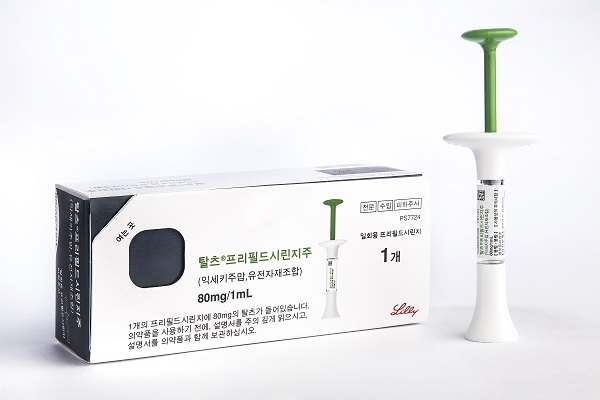The Korean branch of Eli Lilly and Company said Tuesday that it gained reimbursement for its psoriasis treatment Taltz (ixekizumab) from the Ministry of Health and Welfare. The decision comes within two months of product launch.

To get benefits from the coverage, among other eligibility criteria, are patients with chronic severe plaque psoriasis lasting more than six months, whose psoriasis covers more than 10 percent of their body surface area and more than a Psoriasis Area and Severity Index (PASI) 10 score. Also to be benefitted are those who discontinued MTX or cyclosporine treatment due to lack of response or side effects after three months of treatment.
Taltz, an interleukin-17 inhibitor, showed a statistically significant higher level of skin improvement and a similar safety profile with existing psoriatic therapies – ustekinumab and etanercept – in direct comparison studies.
In particular, the treatment showed higher efficacy in reaching PASI 90, an evaluation index that indicates improvements in the area and severity of psoriasis by more than 90 percent compared to the baseline.
In the comparison study with Stelera (ustekinumab), the Taltz group had a 72.8 percent rate of achieving a PASI 90, while those taking ustekinumab had a 42.2 percent rate.
In two studies that pitted Taltz against Enbrel (etanercept), those taking etanercept had an 18.7 percent and 25.7 percent rate of achieving PASI 90 while those taking Taltz had a 70.7 percent and 68.1 percent rate of reaching the same score. There was also a significant improvement in the PASI 75 response rate and itchiness starting from the first week.
A meta-analysis comparing the efficacy of Taltz against Cosentyx (secukinumab), which are both interleukin 17A inhibitors, showed ixekizumab demonstrated significantly higher efficacy regarding PASI 90 and PASI 100 response rates, Lilly Korea said.

